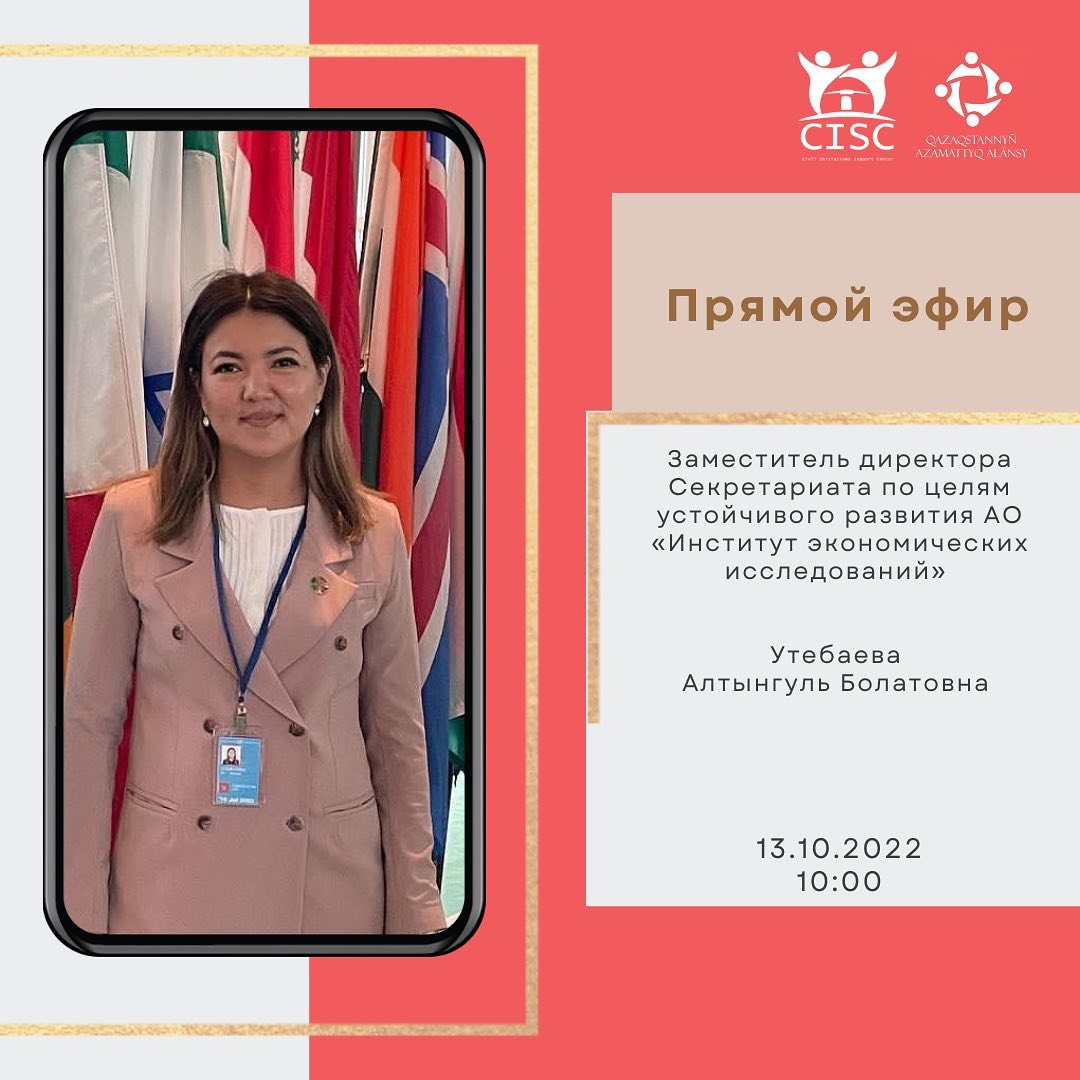ERI Expert: For further implementation of the UN Agenda until 2030, it is necessary to localize the SDGs
Altyngul Utebayeva, an expert of the Institute of Economic Research (ERI) JSC, took part in the live broadcast of the Civil Alliance of Kazakhstan ALE on the implementation of the UN 2030 Agenda in the field of sustainable development.
On September 25, 2015, at the UN headquarters in New York, world leaders, including heads of State and government, adopted the 2030 Agenda for Sustainable Development, which includes a list of 17 Sustainable Development Goals aimed at eliminating poverty, combating inequality and injustice, and also solving problems related to climate change.
The purpose of the live broadcast is to provide listeners with information about the main trends in the implementation of the Sustainable Development Goals in Kazakhstan and the main factors influencing the achievement of the 2030 Agenda.
Main discussion issues:
— general trend of SDG implementation in Kazakhstan;
— monitoring of SDGs in the country;
— the influence of external factors on the achievement of the SDGs in the country;
— issues of interaction and achievement of SDGs in Central Asian countries;
— issues of gender inequality;
— further steps to implement the SDGs, etc.
According to the Global Sustainable Development Index 2022, Kazakhstan has achieved SDG 1: «Poverty eradication" and SDG 10: "Reducing inequality», said Altyngul Utebayeva, Deputy Director of the Secretariat for the ERI SDGs.
The speaker said that the Coordination Council for the SDGs was approved this month; there is a Committee for monitoring the achievements of the SDGs, on the site of which issues on achieving national indicators are discussed. Out of 262 national indicators, 87 indicators should be included in strategic documents.
«In the conditions of geopolitical, economic and technological factors that the world is currently facing, as well as the post-crisis period, it is difficult to predict the achievement of the 2030 Agenda, but the active measures taken by the Government in 2019-2021 (for example, the adoption of a law on inclusive education, updating the Concept of Family and Gender Policy, etc.) will make it possible to certain steps to achieve it», — Altyngul Utebayeva added.
The
speaker also noted that the country has created an institutional framework for
the implementation of the SDGs and approved national SDG indicators. To further
implement the UN Agenda until 2030, it is necessary to localize the SDGs.

The event wa.organized within the framework of the project "Conducting socio-political events to strengthen civil society" with the support of the NGO "Center for Support of Civil Initiatives" of the Ministry of Information and Public Development.
The moderator from the SAC was Assol Akisheva-Mirmanova.





